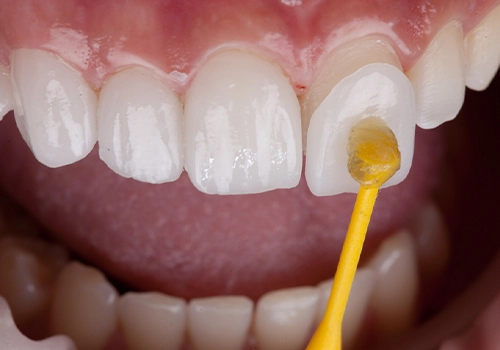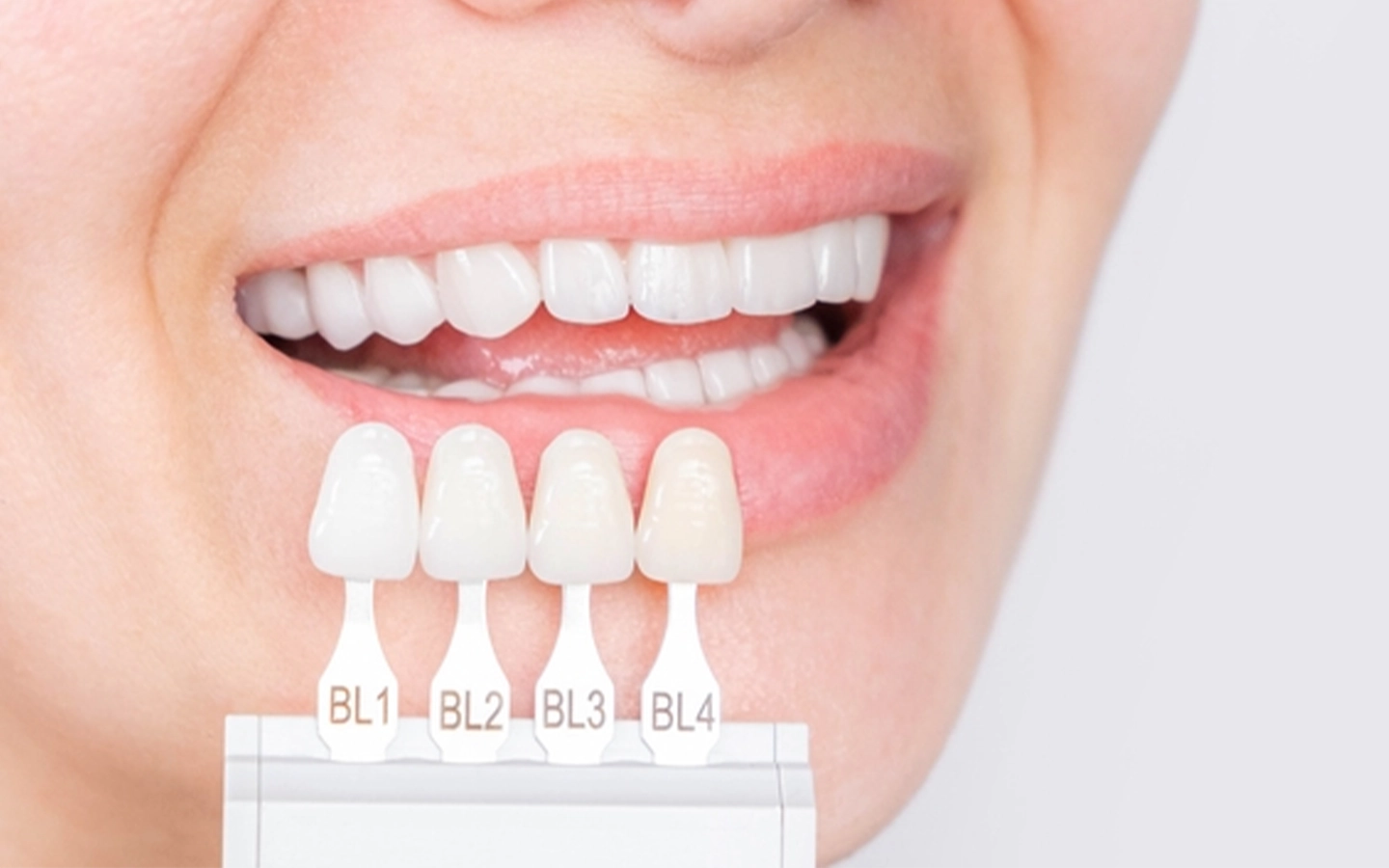Dental Veneers Decoded; From Procedure to Perfection
Dental veneers are a popular cosmetic dentistry solution for achieving a dazzling smile. This article explores their types, advantages, aftercare, risks, and preparation. It’s crucial to choose a reputable and skilled service provider, like Iran and Dr.Maadico, for a successful procedure. Their commitment to precision and patient satisfaction makes them significant contributors to the field of cosmetic dentistry.
What are Dental Veneers?
In the field of cosmetic dentistry, dental veneers have become a game-changer, giving people the chance to have a stunning smile. These thin, precisely formed shells are perfectly attached to the front surface of teeth.
They are constructed from either porcelain or composite materials. This painstaking application procedure improves the appearance of one’s smile overall while successfully hiding flaws including stains, discoloration, and little misalignment s. Dental veneers are a popular option for people looking for a minimally invasive yet highly effective cosmetic dental remedy because of their versatility in treating a variety of cosmetic issues.
Types of Dental Veneers
Starting the process of improving your smile with dental veneers brings up a world of opportunities. There are many different types of dental veneers available, each having special qualities and benefits of their own. In this investigation, we explore the diverse realm of dental veneers, elucidating the differences among varieties and assisting you in selecting the ideal option for your beautiful smile.
- Porcelain Veneers:
Porcelain veneers are well known for being long-lasting and realistic-looking. These specially-made shells have a reputation for being stain-resistant and having a translucency similar to real teeth. They are the best option for people looking for a long-term way to improve their smile.
- Composite Veneers:
Porcelain veneers are more expensive than composite veneers, which are formed of a resin substance. Composite veneers provide a quicker application process than porcelain, but they are still a good choice for individuals seeking cosmetic improvement at a reasonable price.

Advantages of Dental Veneers
Learn about the many benefits dental veneers offer to your smile and the transformational potential they possess. Dental veneers offer a route to improved appearances and increased confidence by hiding flaws and offering a minimally intrusive cosmetic treatment. Come along as we explore the amazing benefits that make dental veneers a highly sought-after option in cosmetic dentistry.
- Enhanced Aesthetics:
In addition to hiding stains, discolorations, and irregular spacing, dental veneers provide teeth a more attractive and natural appearance.
- Minimally Invasive:
When compared to other cosmetic operations, the placement of dental veneers requires less removal of tooth enamel, maintaining the integrity of the natural tooth structure.
- Stain Resistance:
Porcelain veneers are very stain-resistant, guaranteeing a brilliant, long-lasting smile.
- Versatility:
Dental veneers can address a range of cosmetic concerns, including chipped or misshapen teeth, giving individuals the flexibility to achieve their desired smile.
Good Candidates for Dental Veneers
Dental veneers are not suitable for everyone. Numerous considerations determine whether this cosmetic operation is appropriate. Those who are good candidates usually include those who:
- maintain healthy gums and teeth.
- wish to make teeth that are discolored or stained look better.
- Try to fix small flaws such as broken or crooked teeth.
- Continue to exercise proper oral hygiene.
Dental Veneers Procedure
The dental veneer procedure is a multi-step process involving consultation, preparation, and application. Understanding each phase is essential for individuals considering this cosmetic enhancement.
- Consultation:
A comprehensive consultation with a licensed dentist kicks off the adventure. The dentist evaluates the patient’s oral health, goes over expectations, and chooses the best kind of veneers at this appointment.
- Preparation:
The teeth are usually prepped for veneer application by removing a small amount of enamel. This guarantees a good fit and aids in creating a natural appearance. Next, impressions of the patient’s teeth are obtained to make veneers specifically designed to fit their unique tooth structure.
- Temporary Veneers:
Temporary veneers may be applied to safeguard the prepared teeth while the permanent veneers are being made. Before the permanent veneers are cemented, these temporaries provide a sneak peek at the finished product and let you make any necessary revisions.

- Bonding:
When the personalized veneers are prepared, the dentist uses a unique glue to precisely adhere them to the teeth. Right alignment and bite are checked by the dentist before the bonding procedure is completed.
Veneers vs. Crowns; Decoding the Dilemma
Although they both seek to improve teethes appearance, dental veneers, and crowns vary in how they are applied and how much tooth preparation is required.
- Dental Veneers:
- applied to the teethes anterior surface.
- minimal loss of enamel.
- Perfect for fixing aesthetic issues without requiring big structural adjustments.
- Dental Crowns:
- cover the whole tooth.
- extensive removal of enamel.
- Ideal for situations where there is severe dental damage or structural problems.
It’s important to comprehend the subtle differences between each option, and speaking with an experienced dentist will help you decide which option best suits your needs.
Risks Associated with Dental Veneers
Even though dental veneers are thought to be safe in most cases, it’s important to be aware of potential dangers and issues:
- Sensitivity:
There’s a chance that some people will have more sensitive teeth, especially right after veneer application. Usually, this sensitivity fades with time.
- Irreversible Process:
People should be advised that the removal of enamel is permanent and that they might need to use veneers going forward.
- Maintenance:
The lifetime of dental veneers depends on maintaining good oral hygiene. Inadequate maintenance might result tooth problems including gum disease or damage to veneers.
Dental Veneers Aftercare
Maintaining a thorough aftercare regimen is essential to ensuring the longevity of your dental veneers. Here are some crucial pointers for aftercare:
- Regular Dental Check-ups: Make an appointment with your dentist for routine examinations so that you can keep an eye on the state of your veneers and take quick care of any problems.
- Oral Hygiene: Keep up a strict regimen of brushing, flossing, and using an antimicrobial mouthwash regularly.

- Avoid Teeth-Staining Substances: Even though porcelain veneers are stain-resistant, it’s best to limit your intake of foods and drinks that can discolor your teeth, such as tobacco, red wine, and coffee.
- Protect Your Teeth: Wearing a mouth guard can preserve your investment if you participate in activities like contact sports that have the potential to cause harm to your teeth.
What Are the Best Dental Veneers?
The “best” dental veneers are determined by taking into account the intended result, financial limits, and personal preferences. Composite veneers are a more affordable option than porcelain veneers, which are recognized for their enduring quality and realistic appearance.
Conclusion
Dental veneers are a cosmetic dentistry procedure that can provide a radiant, flawless smile. Understanding the types, advantages, risks, and aftercare is crucial. Iran and Dr.Maadico are reputable service providers known for their expertise and commitment to delivering exceptional results.
Consult with qualified dentists in Dr. Maadico’s Cosmetic Department to embark on your journey to a radiant smile through dental veneers.
If you’re ready for a change, request a free consultation.
You may also be interested in knowing about:
Gum Lift Surgery
Tooth Bleaching Procedure
Hollywood Smile
FAQ
- What not to do before getting veneers?
Before obtaining veneers, abstain from biting hard objects, avoid drinking stain-causing substances like coffee or nicotine, and avoid undergoing extensive dental operations.
- How long do veneers take to settle?
After the first placement, veneers usually take a few days to a few weeks to settle in. During this time, patients may notice minor changes in their bite or sensitivity; however, these changes normally go away as the mouth gets used to the new veneers.
- How much does it cost to get veneers in Iran?
Dental services in Iran are a viable option. Veneers can range in price, so for precise information, it’s best to speak with our specialists in Dr. Maadico’s Cosmetic Department.
- What happens to teeth under veneers?
Under veneers, the natural teeth are not compromised. During the preparation phase, very little enamel is typically removed; nonetheless, the tooth structure is still there behind the veneers.


